Category: Brain
-
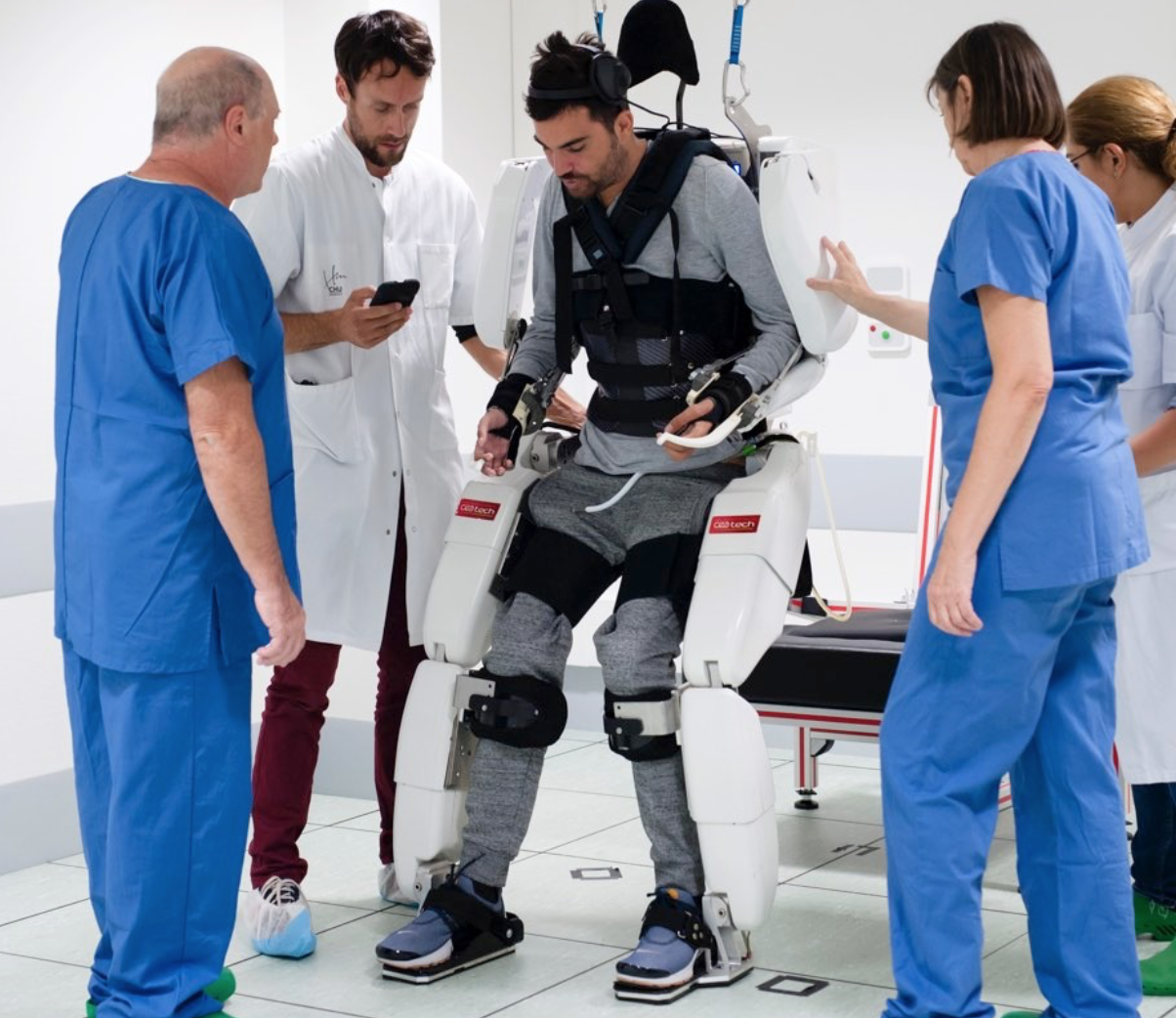
Implanted electrodes + algorithm allow thought-driven 4 limb exoskeleton control
Alim Louis Benabid and Clinatec/University of Grenoble colleagues have developed a brain computer interface controlled exoskeleton that enabled a tetraplegic man to walk and move his arms. Two 64 electrode brain implants drove the system. Benabid explained the benefits, stating that “previous brain-computer studies have used more invasive recording devices implanted beneath the outermost membrane of the…
-
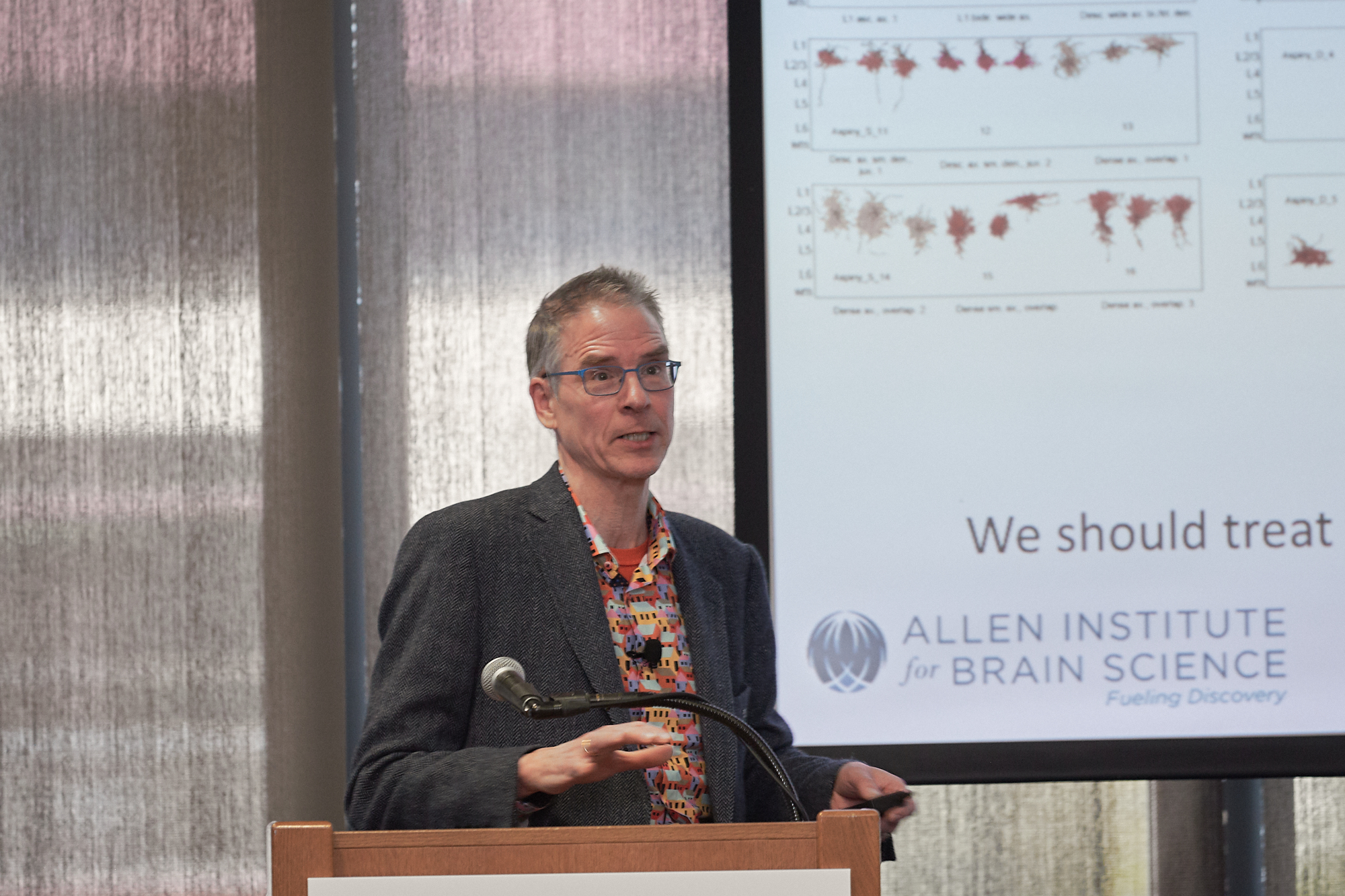
Christof Koch on brain health – ApplySci @ Stanford, 2019
Click to view Christof Koch’s talk on brain health – recorded at ApplySci’s 11th Wearable Tech + Digital Health + Neurotech conference at Stanford University on February 21, 2019. Join us at the 12th and 13th ApplySci conferences, at Harvard Medical School on November 14, 2019, and February 11-12, 2020 at the Quadrus Center on…
-
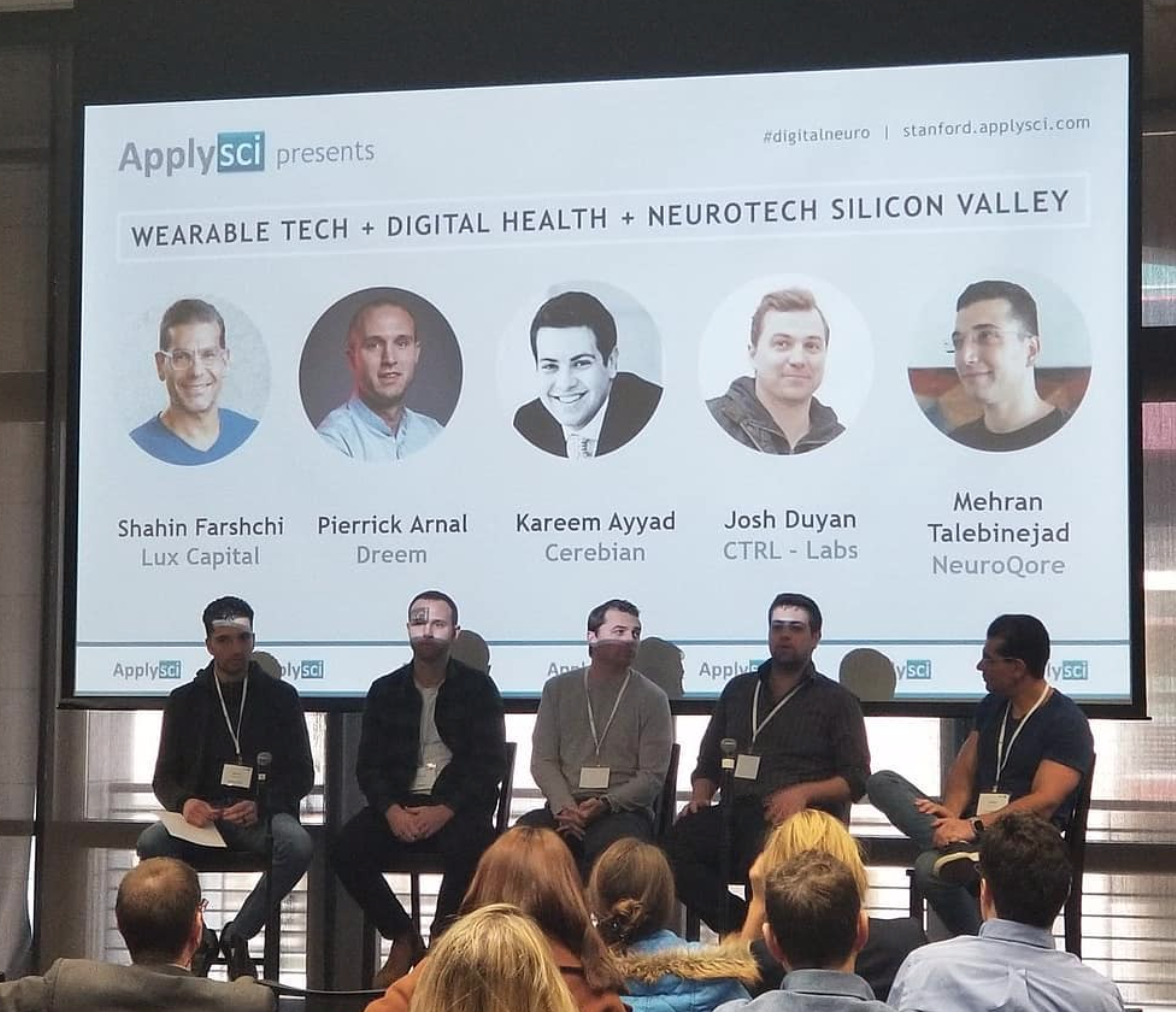
CTRL-Labs acquired by Facebook for 500M – 1B
Congratulations to CTRL-Labs and Lux Capital on Facebook’s acquisition of the four year old Neurotech startup. The company, whose technology assists in decoding brain activity and intention, will join Facebook’s AR/VR team. CTRL-Labs participated in a recent ApplySci panel of startups at Stanford led by Lux Capital’s Shahin Farshchi. Facebook presented its Brain Computer Interface work at the…
-
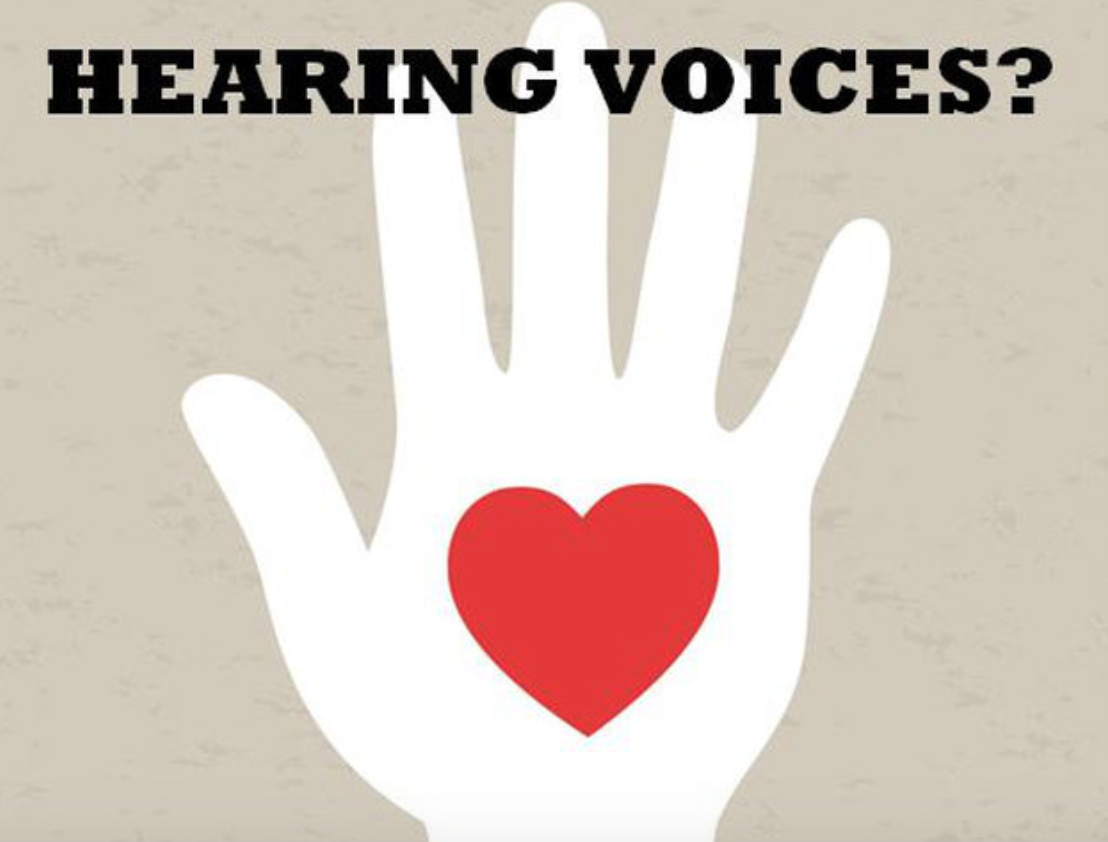
Phone-based support for psychosis
University of Washington’s Dror Ben Zeev has published a paper detailing a wide array of phone-based technology meant to support the recovery of psychosis throughout life — from early detection to symptom management to vocational rehabilitation, The study includes self reported mental health assessments, self-management interventions, medication reminders, messages from case managers, tele-therapy, and skill…
-

Sensor tracks cerebral aneurysm hemodynamics
Georgia Tech’s Woon-Hong Yeo has developed a 3D-printed, stretchable, battery-free, wireless sensor, implanted in brain blood vessels to measure incoming blood flow, to evaluate aneurysm healing. The tiny device wraps around stents or diverters implanted to control blood flow in affected vessels. It is believed to be the first demonstration of aerosol jet 3D printing to…
-
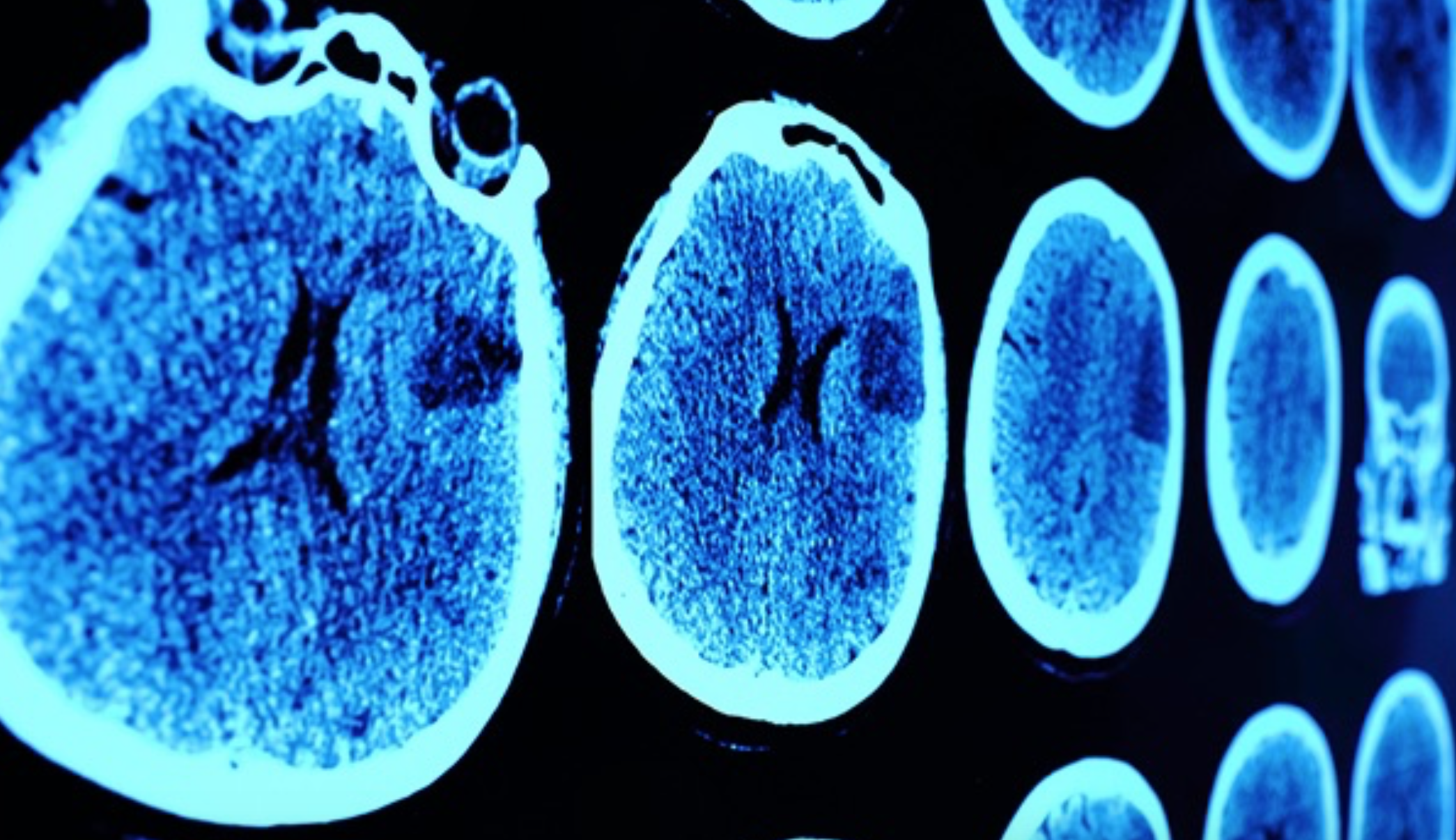
AI detects brain aneurysms, predicts rupture risk in surgery
Fujitsu, GE Healthcare, Macquarie University and Macquarie Medical Imaging are using AI to detect and monitor brain aneurysms on scans faster and more efficiently. Fujitsu will use AI to analyze brain images generated by GE’s Revolution C scanner and an algorithm that detect abnormalities and aneurysms. The algorithm will be capable of highlighting an arterial ring…
-
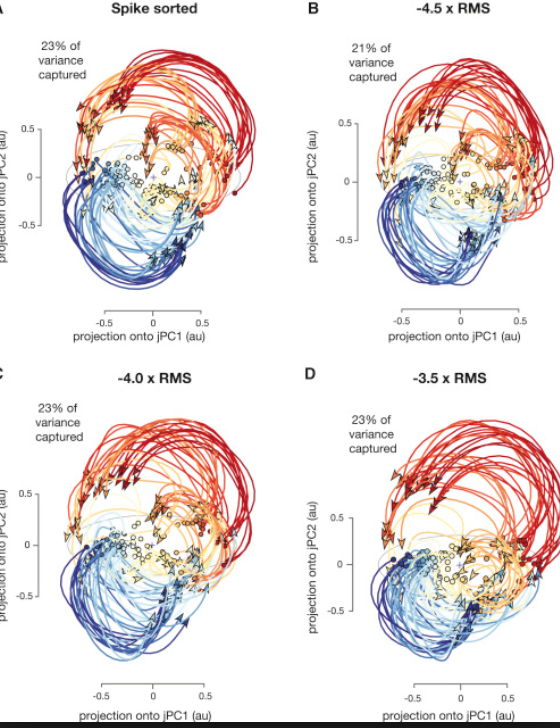
New electrodes, brain signal analysis, for smaller, lower power, wireless BCI
Building on his prior brain-controlled prosthetic work, Stanford’s Krishna Shenoy has developed a simpler way to study brain electrical activity, which he believes will lead to tiny, low-power, wireless brain sensors that would bring thought-controlled prosthetics into much wider use. The method involved decoding neural activity in aggregate, instead of “spike sorting.” Spike sorting must be…
-
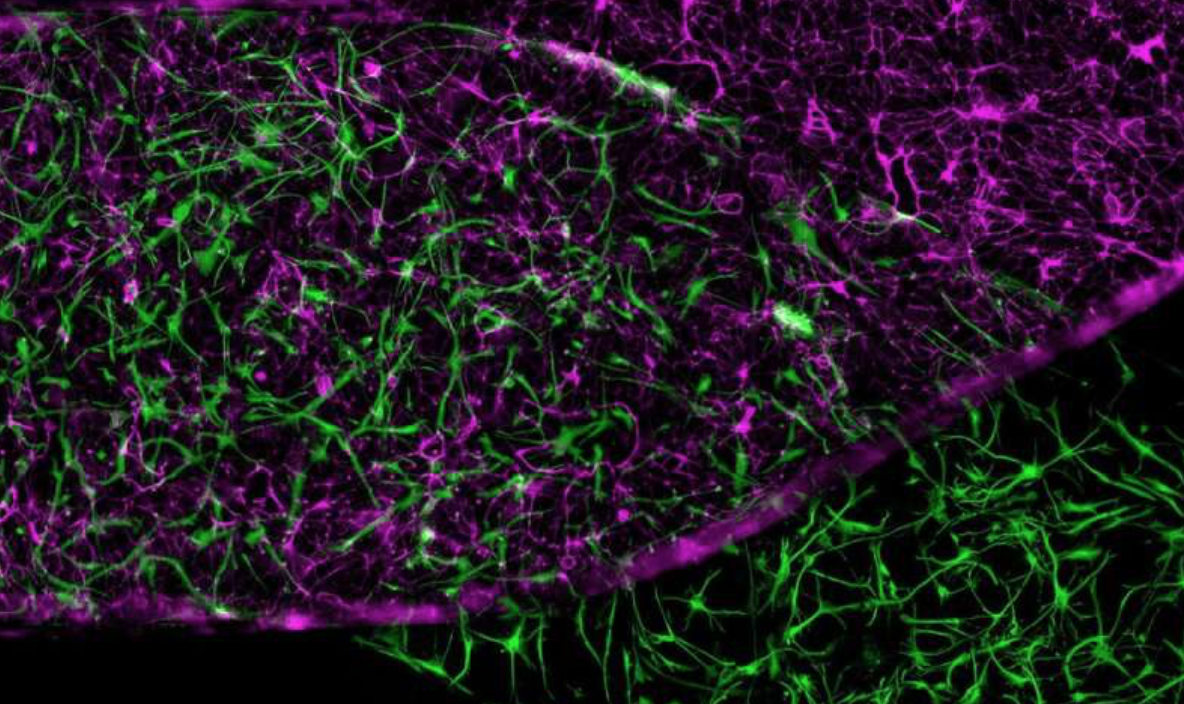
Blood-brain-barrier recreated inside organ chip with pluripotent stem cells
Clive Svendsen, Gad Vatine, and Cedars Sinai and Ben Gurion University of the Negev colleagues have recreated the blood-brain barrier outside of the body using induced pluripotent stem cells for the first time. In a study, the recreated bbb functioned as it would in the individual who provided the cells to make it. This could…
-

App optimizes meditation length to improve attention and memory
Adam Gazzaley and UCSF colleagues have developed a focus-driven digital meditation program that improved attention and memory in healthy adults in a recent study. MediTrain tailors meditation session length to participant abilities, and challenges users to increase session time. Subjects received significant benefits in 6 weeks. On their first day, they focused on their breath…
-
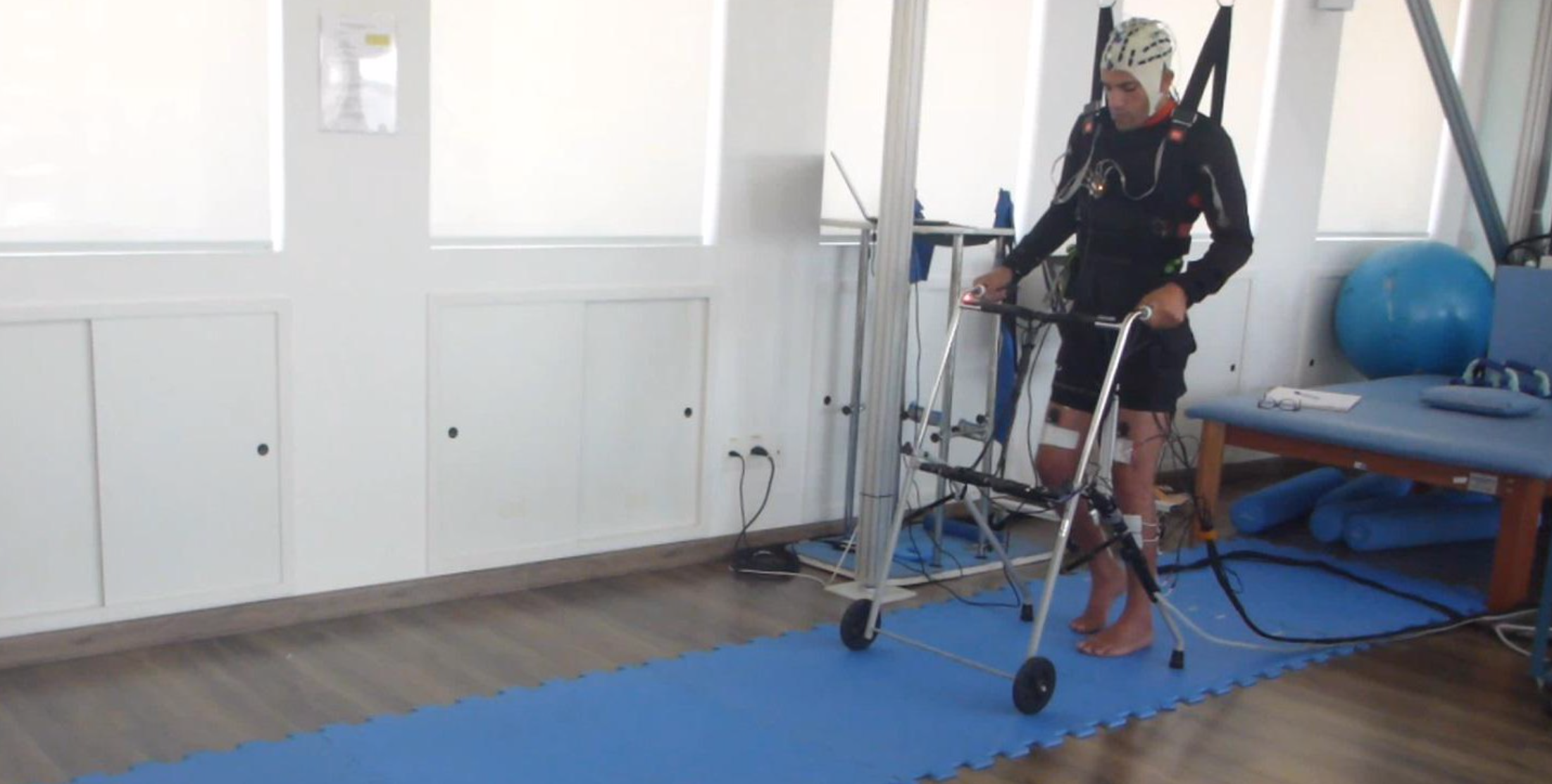
Study: Noninvasive BCI improves function in paraplegia
Miguel Nicolelis has developed a non-invasive system for lower-limb neurorehabilitation. Study subjects wore an EEG headset to record brain activity and detect movement intention. Eight electrodes were attached to each leg, stimulating muscles involved in walking. After training, patients used their own brain activity to send electric impulses to their leg muscles, imposing a physiological gait. With…
-

AI detects depression in children’s voices
University of Vermont researchers have developed an algorithm that detects anxiety and depression in children’s voices with 80 per cent accuracy, according to a recent study. Standard diagnosis involves a 60-90 minute semi-structured interview with a trained clinician and their primary care-giver. AI can make diagnosis faster and more reliable. The researchers used an adapted…
-
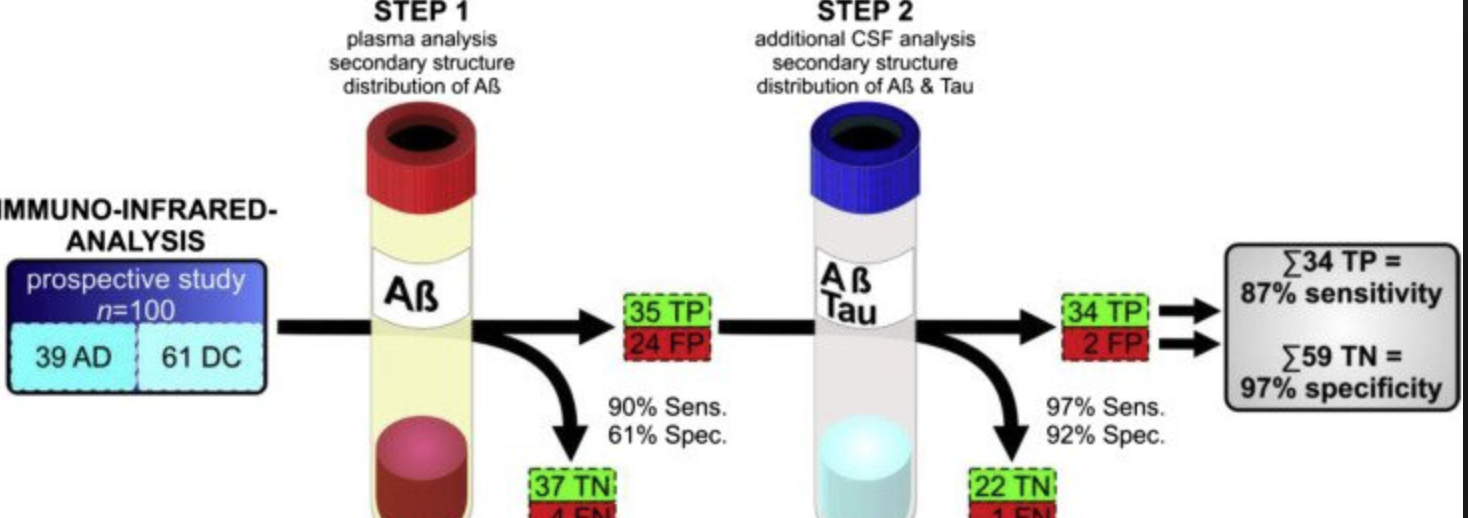
Study: Blood + spinal fluid test detects Alzheimer’s 8 years before symptoms
Klaus Gerwert at Ruhr-Universität Bochum has developed a blood + CSF test that he claims can detect Alzheimer’s disease 8 years before the onset of symptoms. The goal is early stage therapy to achieve better results than current treatment protocols. To reduce false positive results from the initial study, the researchers first used a blood…